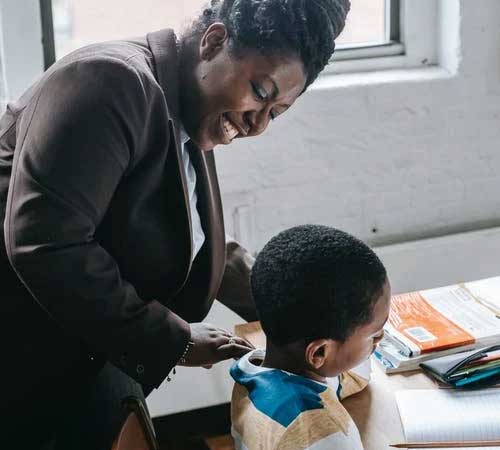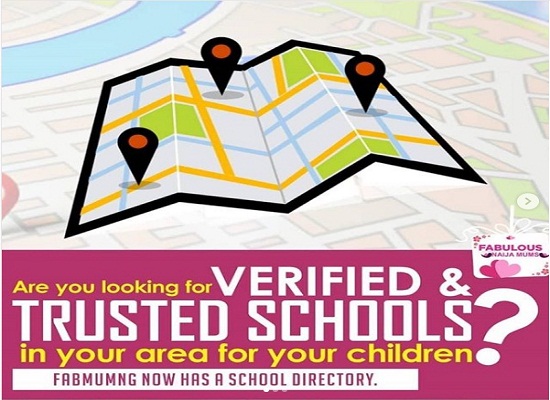
Conflicts between parents and their child’s teacher can arise for various reasons. Below are some common forms of conflict and suggestions for resolving them:
1. Academic Performance
If a parent believes their child’s academic performance is unsatisfactory, they may blame the teacher.
The first step to making things work out is effective communication.
To resolve conflicts, parents should request a meeting with the teacher to discuss their concerns and understand the reasons behind the child’s performance.
The teacher can provide insights into the child’s progress, suggest strategies for improvement, or recommend additional resources or support.
2. Discipline And Behaviour
Disagreements regarding discipline and behaviour can lead to conflict.
If a parent feels their child is unfairly punished or disciplined, it’s essential to approach the situation calmly.
Request a meeting with the teacher to discuss specific incidents and better understand the disciplinary measures in place.
Both parties should work together to establish fair and reasonable and consistent rules and consequences.
3. Communication Gaps
Miscommunication or lack of communication can cause misunderstandings and conflict. Parents may feel uninformed about their child’s progress, events, or changes happening in the school.
Establishing effective channels of communication is crucial. In fact, it is essential when you want to resolve conflicts between your child and a teacher.
Teachers should keep parents updated through regular parent-teacher meetings, newsletters, or digital platforms. Parents should actively engage with the school and maintain open lines of communication with the teacher.
4. Cultural Differences
In a multicultural society like Nigeria, cultural differences between parents and teachers may lead to conflicts. It’s important to recognise and respect each other’s cultural perspectives.
Teachers should understand their students’ cultural backgrounds and adapt teaching methods accordingly.
Parents should also be open to understanding the school’s educational system and cultural norms.
Encouraging dialogue and cultural sensitivity can help resolve conflicts arising from cultural differences.
5. Disagreements On Teaching Methods
Parents may have different expectations or preferences regarding teaching methods.
If a parent disagrees with the teacher’s approach, it’s essential to have a constructive discussion.
The teacher can explain the rationale behind their practices and provide evidence of their effectiveness.
Parents should express their concerns respectfully and propose alternative ideas if appropriate.
Collaboratively finding a middle ground that meets the child’s needs is crucial in resolving this conflict.
Conflicts between parents and teachers can hinder a child’s educational journey.
In other words, conflict resolution between parents and teachers can be summarised in the following vein:
-
Open And Respectful Communication
Establishing open and respectful communication is the first step in resolving conflicts with your child’s teacher.
Initiate a conversation with the teacher calmly and non-confrontational, expressing your concerns or points of disagreement.
Actively listen to the teacher’s perspective and try to understand their point of view.
Avoid assigning blame and focus on finding common ground for the benefit of your child.
-
Seek Clarity And Understanding:
Miscommunication or misunderstandings can often lead to conflicts between parents and teachers.
Take the time to seek clarity and understanding by asking questions and requesting additional information.
Have You Read: 7 Ways To Work With Your Child’s Teacher For Better Results
Seek specific examples or evidence to support any concerns or issues raised.
Approach the conversation genuinely to gain insight and find resolutions rather than simply defending your position.
-
Collaborative Problem-Solving
Approaching conflicts as opportunities for collaboration and problem-solving can lead to constructive outcomes.
Instead of adopting an adversarial stance, work with the teacher to identify the underlying issues and brainstorm potential solutions.
Encourage open dialogue and explore alternative approaches that can meet the needs of both parties.
Remember, the ultimate goal is to create a supportive and conducive learning environment for your child.
-
Establish Regular Communication Channels
Maintaining regular communication channels with your child’s teacher can help prevent conflicts from escalating in the first place.
Establish a communication routine, whether through email, phone calls, or in-person meetings.
Regularly inquire about your child’s progress, share concerns or observations, and express appreciation for the teacher’s efforts.
By fostering a positive and ongoing relationship, you can address any emerging issues proactively and collaboratively.
Find more resources on parenting here.



